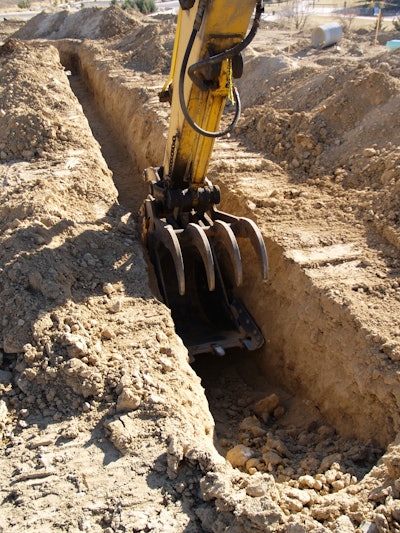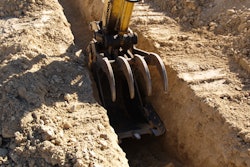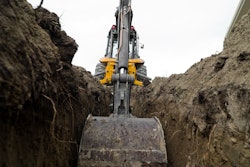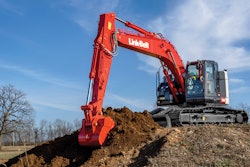
A new law signed by New York’s governor raises minimum felony criminal penalties for workers’ deaths or serious injuries to $500,000.
That’s up from $10,000, which was the highest penalty allowed by N.Y. law in such cases.
A misdemeanor criminal conviction in a worker’s death or serious injury now comes with a $300,000 minimum penalty – up from a maximum of $5,000 – after Governor Kathy Hochul signed Carlos’ Law on December 23.
The law is named for 22-year-old Carlos Moncayo who was killed in a trench collapse in New York City in 2015. The construction companies found guilty in the case had to pay a criminal fine of $10,000 each – the maximum under state law at the time. The low financial penalties outraged workers’ advocates as well as some prosecutors and lawmakers in the state.
Carlos’ Law now requires criminal penalties of at least $300,000 for a misdemeanor and $500,000 for a felony conviction for a worker’s death or serious injury when a company is found guilty of criminal corporate liability. The corporation is subject to the penalty when it “negligently, recklessly, intentionally or knowingly causes the death or serious physical injury of its employees while they are on the job,” according to Hochul’s office.
The new law also expands the definition of employees to subcontractors and day laborers.
"Carlos' Law will now force construction firms to value workers' well-being, instead of writing off serious workplace injuries as a cost of doing business,” says state assembly member Rodneyse Bichotte Hermelyn, a sponsor of the bill.
Supporters say the goal of the law is to prevent deaths like Moncayo’s and to put in a deterrent to contractors who ignore safety laws. The previous maximum of $10,000 was too low, they say.
The president of the New York Building Trades Employers Association, Louis Coletti, however, had argued that the change would have a “punitive effect” on construction contractors in the state and put the N.Y. construction industry at greater risk of recession. He sought an amendment that would set the $300,000 and $500,000 penalties as a maximum instead of a minimum.
Carlos’ death
On April 6, 2015, an inspector at a worksite in New York City’s Meat Packing District had several times warned the site’s supervisor and foreman to keep workers out of an unprotected trench. Not long after the last warning, the trench collapsed on Moncayo, an undocumented worker from Ecuador who was crushed to death.
At trial in 2016, the foreman for the excavation subcontractor, Wilmer Cueva, was sentenced to one to three years for felony criminally negligent homicide and misdemeanor reckless endangerment.
After Cueva’s conviction, site supervisor Alfonso Prestia accepted a plea deal of probation and community service for criminal negligent homicide.
Prestia’s employer, Harco Construction, ended up paying $10,000, the maximum fine the court could impose, after being convicted of second-degree manslaughter, criminally negligent homicide and reckless endangerment in June 2016. The company was also fined $140,000 by the U.S. Occupational Safety & Health Administration after the agency’s investigation.
Cueva’s employer, Sky Materials, reached a plea deal to pay a $10,000 fine on the manslaughter charge. OSHA also fined Sky $100,000.
Following Hochul’s signature of the law, state Senator James Sanders said justice was not served in Moncayo’s case and that worksite deaths have continued since the incident.
“Since then, many New York workers have suffered serious injury and even death on the worksite from similar behavior by their supervisors without facing the full consequences of their actions,” Sanders said.
"One construction worker is killed on the jobsite in New York every five to six days,” says Mike Hellstrom, Eastern Region vice president for the Laborers' International Union of North America. “This bill, which would allow for a penalty up to 50 times more than Carlos' employer was hit with, will first and foremost be a deterrent.”













